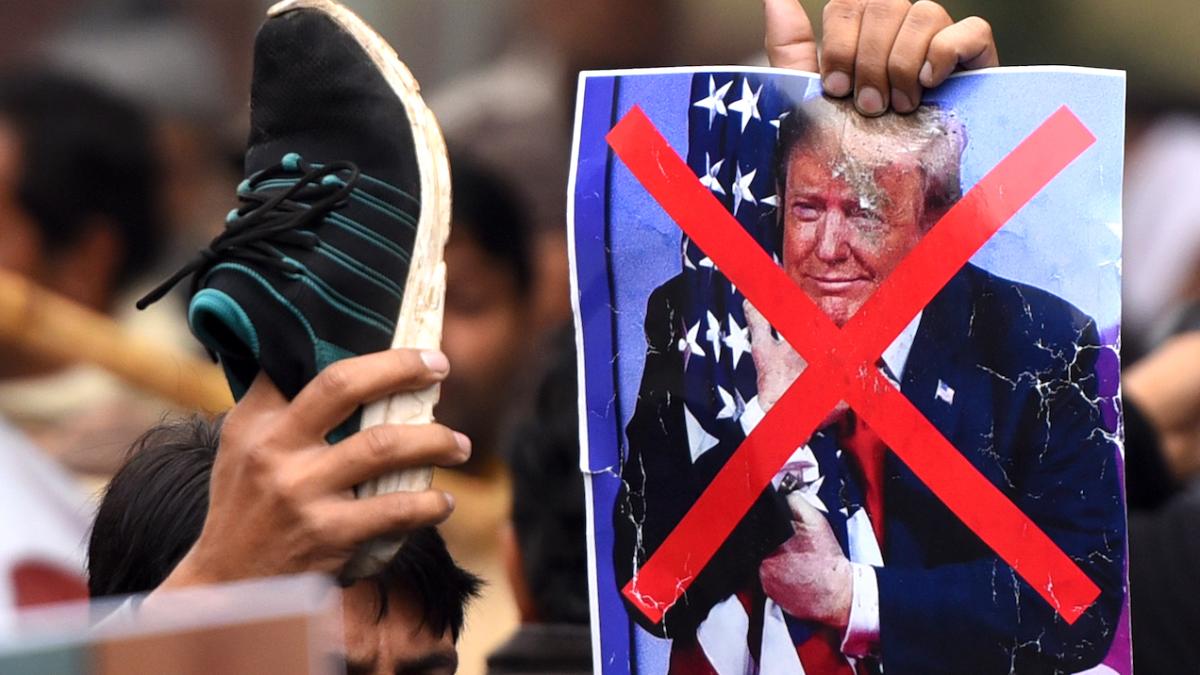
Good afternoon, and welcome to another edition of Oh Shit, Are We Going To War Again? This time, Iran and the United States are at each other’s throats, and Australia is in the mix too. It feels weird being in this situation again, and there’s a lot of information flying around, but we’ve got you covered. Well, as much as we can, given the circumstances.
[jwplayer fm3mLdS2]
What’s going on with the missile strike business?
Here’s where we’re at: Iran today claimed responsibility for missile strikes on two Iraqi military bases, both of which contained US troops. It is not immediately clear if the attacks on the Al-Asad and Erbil bases resulted in any Iraqi or US casualties, but the military action represents a drastic escalation in tensions between a Middle East power and one of its primary opponents.

How did we get here?
To understand precisely what’s at play means unravelling centuries of political and religious conflict. Still, recent history suggests the missile strike is sincerely terrible news for anyone vaguely interested in regional peace. I’m including Australians in that number, too.
We know the strike was revenge for America’s assassination of Iran’s hugely influential Major General Qassim Soleimani on Friday, and we know because Iranian forces said as much. The New York Times reports Iran’s Islamic Revolutionary Guard Corps posted a message on Telegram claiming “The fierce revenge by the Revolutionary Guards has begun.”
So, why did American forces use a drone strike to kill Soleimani in the Iraqi capital of Baghdad? In short, senior officials blame Soleimani’s influence over Iraqi militias for the deaths of hundreds of US troops in the endless Iraq war. And, if you listen to US President Donald Trump, killing Soleimani was intended to deter further aggression against American troops.
….of PROTESTERS killed in Iran itself. While Iran will never be able to properly admit it, Soleimani was both hated and feared within the country. They are not nearly as saddened as the leaders will let the outside world believe. He should have been taken out many years ago!
— Donald J. Trump (@realDonaldTrump) January 3, 2020
That obviously didn’t pan out.
This stoush doesn’t just involve military intervention, either. The diplomatic relationship between the US and Iran has soured considerably since Trump took office, largely because he decided to reinforce the crushing economic sanctions lifted by his predecessor President Barack Obama.
Obama’s agreement with Iran saw the nation wind down its nuclear program, which Iran now says is back in operation. [Editor’s note: a previous version of this article suggested Iran could be working towards nuclear weaponry as a result of Trump chucking a tantrum and wanting to undo Obama’s diplomatic agreement, but experts say Iran continues to permit international oversight over their nuclear program while displaying little evidence of rushing toward a bomb.]
Whether Trump and the American military apparatus will be trolled into further retaliation is frighteningly unclear, but Trump said he’ll make a further statement in the morning, local time:
All is well! Missiles launched from Iran at two military bases located in Iraq. Assessment of casualties & damages taking place now. So far, so good! We have the most powerful and well equipped military anywhere in the world, by far! I will be making a statement tomorrow morning.
— Donald J. Trump (@realDonaldTrump) January 8, 2020
What does this mean for Australia and its armed forces?
The immediate future of roughly 350 Australian troops stationed in Iraq, plus the Aussies on deck in diplomatic positions, is also unknown.
After today’s missile strikes, Prime Minister Scott Morrison said he’s directing the head of the Chief of the Defence Force, General Angus Campbell, and Minister for Defence Linda Reynolds to “take whatever actions are necessary to protect and defend our [Australian Defence Force] and diplomatic personnel and keep Australians safe.”
— Scott Morrison (@ScottMorrisonMP) January 8, 2020
Morrison, who is currently touring bushfire-devastated Kangaroo Island, also told reporters “at this point, all Australian diplomatic personnel and ADF personnel are safe, but it is obviously a very fluid situation.”
That might mean a partial withdrawal from Iraq, as Canadian forces have done. But Australia has previously pledged its support for America’s military endeavours in the region, suggesting we’d be tagging along should Trump get any dangerous ideas.
Remember those economic sanctions we mentioned before? In August last year, a tit-for-tat seizure of oil tankers in the Strait of Hormuz on Iran’s southern coastline led to the US and the UK coordinating a military coalition to keep the sea channel open.
Australia punted a warship and Defence Force personnel into the mix, with Morrison saying a reduction of crude oil passing through the Strait of Hormuz would be “a potential threat to our economy.”
A transparent conflict over oil? In the Middle East? Led by a belligerent US leader? Involving an Australian contingent? Maybe we do know how this one will pan out, after all. We’ll keep you posted, regardless.



